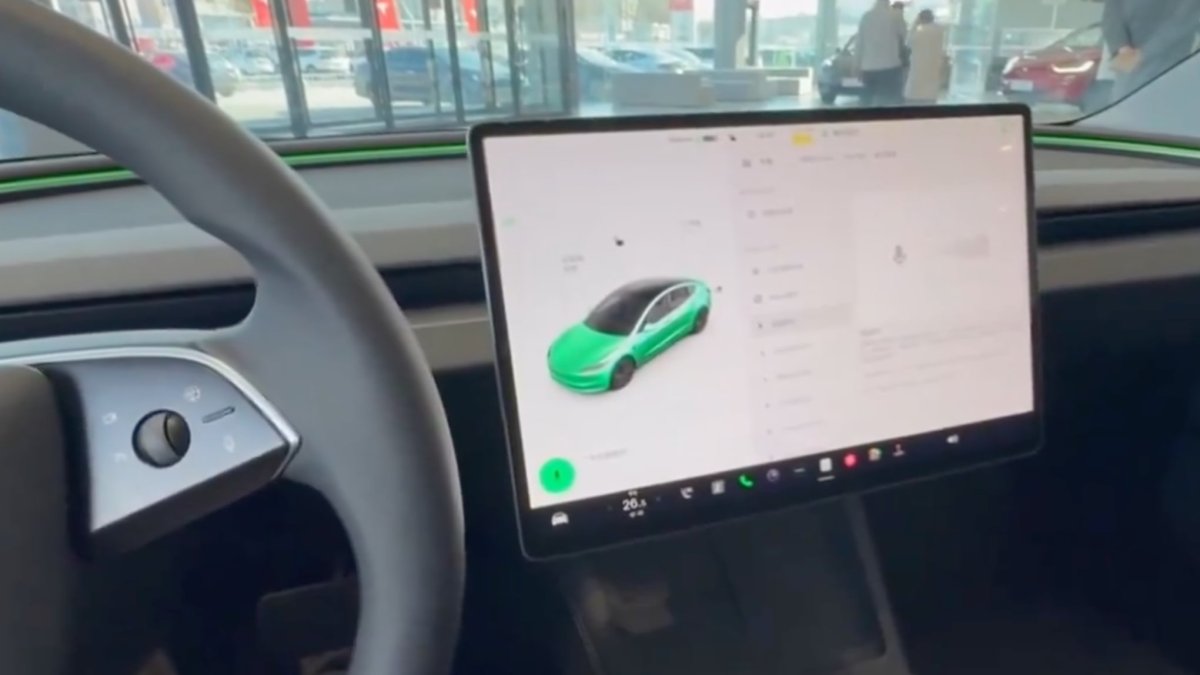Tesla's Game-Changing Move: A Custom Voice Assistant That Could Outdo Alexa and Google

In an industry where innovation is the driving force, Tesla seems to not just follow trends but sets them. The latest buzz around the tech giant is its ambitious project to replace traditional voice commands in its vehicles with a bespoke voice assistant. This move could potentially reshape how drivers interact with their vehicles, shifting from basic command-response interactions to a more intuitive, conversational experience.
The discovery of this revolutionary change was made by the renowned Tesla software analyzer, Greentheonly. By meticulously decompiling Tesla’s latest firmware, they unearthed the embryonic stages of a voice assistant integration. What’s even more intriguing is that Tesla's voice assistant is not an entirely novel concept; it has already been rolled out in China. Their version surpasses the rudimentary voice command systems by enabling control over the vehicle through natural language processing and even answering general knowledge queries such as weather forecasts and stock market updates.
This move by Tesla to develop its own voice assistant technology, instead of leaning on established giants like Amazon Alexa or Google Assistant, speaks volumes about the company's commitment to innovation and self-reliance. In China, Tesla melded its proprietary technology with several existing software solutions to create a unique voice assistant. The challenge now is to scale this technology to support additional regions without the backbone of China-specific software solutions.
What Sets Tesla's Voice Assistant Apart?
Echoing the ethos of Tesla, the forthcoming voice assistant is expected to prioritize user convenience by enabling a wake word activation feature, potentially eliminating the need to physically engage with the vehicle’s controls. This could revolutionize the ergonomics of vehicle control, making it safer and more intuitive for drivers. The speculation around the wake word ranges from the straightforward 'Hey, Tesla' to something more enigmatic or humorous, in true Tesla fashion.
However, the road to replacing conventional voice command systems with a more advanced voice assistant is fraught with challenges. The biggest hurdle could be the integration and compatibility with the myriad smart devices drivers use today. Unlike Alexa or Google Assistant, which support extensive ecosystems, Tesla's proprietary voice assistant might initially offer limited connectivity. Despite these potential limitations, the mere enhancement of vehicle control through natural language processing would mark a significant improvement in user experience.
The integration of ‘Jenny Neutral,’ a voice model from Microsoft's text-to-speech technology, hints at Tesla's aim for a natural-sounding assistant. This choice suggests a desire not just for functional superiority but also for a pleasant, user-friendly interaction.
Tesla’s Strategic Direction
Bringing this technology to its fleet reintroduces the question of which models will support the new voice assistant. With Tesla’s recent software v12 and update 2024.14.3, it's clear the company is drawing boundaries on features available to older, Intel-based vehicles. The computational demands of a sophisticated voice assistant will likely necessitate hardware capabilities beyond what older models can provide.
The speculated inclusion of a voice assistant in Tesla’s ecosystem signifies more than just a technological enhancement; it demonstrates Tesla's vision of a future where vehicles become increasingly autonomous, intuitive, and integrated into the wider web of IoT devices. This initiative might also foretell Tesla's strategy to foster a more insulated ecosystem, akin to Apple's, where control over both hardware and software components allows for a seamless, unified user experience.
Conclusion
As Tesla navigates the complexities of introducing a voice assistant to rival Google Assistant and Alexa, it marches on in its mission to redefine automotive technology. This development not only underscores Tesla’s innovative spirit but also its determination to enhance the human-vehicle interface. The success of this venture could set a new standard for vehicular communication, making the leap from functional to conversational, from commanded to intuitive. For Tesla enthusiasts and the tech world at large, this is a journey worth watching.